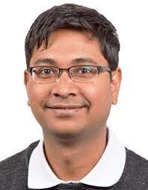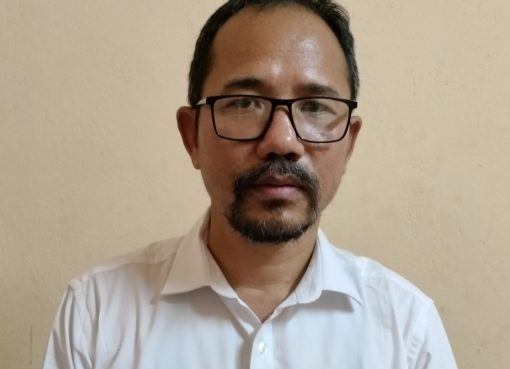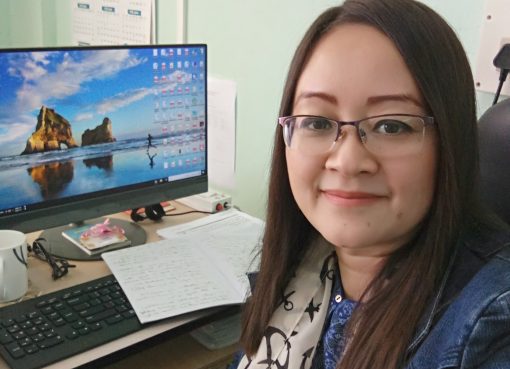Dr. Pankaj Barah is an Assistant Professor and holds the prestigious DBT- Ramalingaswami Re-entry Fellowship in the Department of Molecular Biology and Biotechnology at Tezpur University. Dr. Barah is currently a member of the national core committee of the Indian National Young Academy of Sciences (INSA-INYAS). He earned his M.Sc. degree in Bioinformatics from the University of Madras and completed his Ph.D. in Computational Systems Biology from the Norwegian University of Science and Technology (NTNU) in Trondheim, Norway. Dr. Barah’s career journey has taken him to diverse corners of the globe. Notably, he worked as a Bioinformatics scientist in the division of Theoretical Bioinformatics at the German Cancer Research Center (DKFZ) in Heidelberg, Germany, from 2015 to 2017. During this period, he contributed significantly to the International Cancer Genome Consortium (ICGC) and the Heidelberg Center for Personalized Oncology (HIPO) projects. He received research experience in esteemed institutes across Europe, including Norway, Denmark, England (Sanger Institute Cambridge, John Innes Centre Norwich), Belgium, Netherlands, Italy, Austria, Portugal, Germany, and France. Dr. Barah’s expertise encompasses a wide range of fields, including systems medicine, bioinformatics, big data analysis and integration, Machine Learning, Next Generation Sequencing (NGS), metabolomics, and proteomics. He has so far authored 35 journal articles, edited two books, five book chapters, and numerous popular science articles. His current research interest includes rare cancer types prevalent in Northeast India using OMICs and systems biology approaches. In recognition of his outstanding contributions to science and research, Dr. Barah received eight national and eleven international awards and fellowships including those from reputed organizations such as Government of India, European Union, and the Wellcome Trust (UK).
Dr. Pankaj Barah grew up in a small village called Borbali in the Lakhimpur District of Assam and attended school in his village up to the 10th grade. He then moved to the Lakhimpur town (district head quarter) for his higher secondary (10+2) studies, and later relocated to the city of Guwahati for his undergraduate studies in B. Barooah College, taking Zoology as major. After graduation, he pursued his master’s degree in bioinformatics at the University of Madras. During my MSc, he had the opportunity to work at two world-class institutes in India – the National Centre for Biological Sciences (NCBS) and Indian Institute of Science (IISc) in Bengaluru.
After completing his master’s, Dr. Barah worked in a software company and therafter as a Junior Research Fellow (JRF) at the Bioinformatics Centre, University of Pune, with a fellowship granted by the Department of Biotechnology (DBT), Govt. of India. Later, he moved to the Mathematical Modelling and Computational Biology Group at the CSIR-Center for Cellular and Molecular Biology (CCMB), Hyderabad on receipt of a Senior Research Fellowship (SRF) from the Council of Scientific and Industrial Research, Government of India to work in trans-disciplinary areas of research.
Later, he received a Fellowship from the European Research Council and joined as a PhD scholar at the Norwegian University of Science & Technology in an exciting systems biology project. During that period, he had the opportunity to receive advance training at several highly reputed institutes of Europe like the Sanger Institute and the John Innes Centre in the UK, as well as some other institutes in Norway, Denmark, Netherlands, Italy, Belgium, Austria, Portugal, Germany, and France.
Currently, his research group is investigating how certain cancers become resistant to therapy and develop into high-grade tumors. Additionally, the group is studying why certain diseases occur more frequently in particular populations or regions such as the North-East Region of India. To accomplish these goals, the group employs cutting-edge genome sequencing technologies, molecular biology, and machine learning techniques. To further their research, the group has developed collaboration with clinicians from Dr. Bhubaneswar Borooah Cancer Institute (BBCI), Guwahati, Assam Medical College and Hospital, Dibrugarh, Swagat Super Specialty Surgical Institute Guwahati, and Gauhati Medical College & Hospital.
In another ongoing research project, the group is examining how rice plants adapt and evolve in response to changing climatic conditions. To accomplish this, he has collaborated with the scientists from Assam Agricultural University Jorhat.




